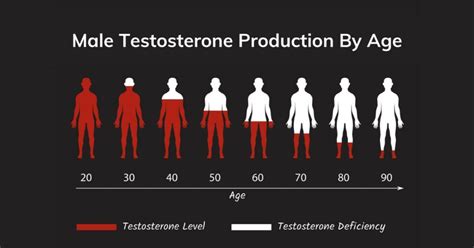Men: How to naturally optimize testosterone for peak performance?

Unlocking Your Potential: The Power of Optimized Testosterone
Testosterone is the cornerstone of male health, influencing everything from muscle mass and bone density to mood, energy levels, and libido. While declining testosterone is a natural part of aging, modern lifestyles can accelerate this process, leading to symptoms like fatigue, decreased strength, reduced cognitive function, and low sex drive. The good news is that you don’t always need synthetic solutions. By adopting targeted natural strategies, men can significantly optimize their testosterone levels, paving the way for peak performance in all aspects of life.
This article will guide you through evidence-based approaches to naturally boost your testosterone, helping you reclaim vitality and achieve your highest potential.

Fueling Your Hormones: The Right Nutrition
Your diet plays a pivotal role in hormone production. Certain nutrients are essential precursors for testosterone synthesis, while others can hinder it.
Prioritize Healthy Fats
- Monounsaturated and Polyunsaturated Fats: Crucial for hormone production. Include sources like avocados, nuts, seeds, olive oil, and fatty fish (salmon, mackerel).
- Saturated Fats (in moderation): While excessive amounts are detrimental, some saturated fat from quality sources (e.g., grass-fed beef, eggs) can support testosterone.
- Avoid Trans Fats: These industrial fats are harmful to overall health and hormone balance.
Adequate Protein Intake
Protein provides the amino acids necessary for muscle repair and growth, indirectly supporting a healthy hormonal environment. Aim for 0.7-1 gram of protein per pound of body weight from sources like lean meats, poultry, fish, eggs, and legumes.
Smart Carbohydrate Choices
Don’t fear carbs, but choose them wisely. Complex carbohydrates from whole grains, fruits, and vegetables provide sustained energy and micronutrients, supporting hormone function without causing drastic blood sugar spikes that can negatively impact testosterone.
Crucial Micronutrients
- Zinc: A powerful mineral directly involved in testosterone production. Found in oysters, red meat, poultry, beans, and nuts.
- Vitamin D: More of a hormone than a vitamin, adequate Vitamin D levels are strongly correlated with higher testosterone. Get regular sun exposure or supplement if necessary.
- Magnesium: Improves free and total testosterone levels, especially in active individuals. Found in leafy greens, nuts, seeds, and whole grains.

Train for Strength: Exercise Strategies
Exercise is a potent natural testosterone booster, but the type of exercise matters.
Strength Training is King
Lifting heavy weights, particularly compound exercises that work multiple muscle groups (squats, deadlifts, bench presses, rows), has been shown to significantly increase testosterone. Aim for 3-4 sessions per week, focusing on progressive overload.
High-Intensity Interval Training (HIIT)
Short bursts of intense exercise followed by brief recovery periods can also stimulate testosterone production. Incorporate HIIT into your routine 1-2 times a week, ensuring you don’t overtrain.
Avoid Chronic Cardio
While beneficial for cardiovascular health, excessive long-duration, moderate-intensity cardio can sometimes elevate cortisol (the stress hormone), which can suppress testosterone. Balance is key.

The Rest Factor: Prioritizing Quality Sleep
Sleep deprivation is a silent killer of testosterone. Most of your daily testosterone is produced during sleep, especially during the deeper stages.
- Aim for 7-9 Hours: Consistent, high-quality sleep is non-negotiable for optimal hormone production.
- Improve Sleep Hygiene: Create a dark, quiet, cool bedroom; avoid screens before bed; and maintain a consistent sleep schedule.

Mastering Your Mind: Stress Management
Chronic stress elevates cortisol, a hormone that directly competes with testosterone and can suppress its production. Managing stress is crucial for hormonal balance.
- Mindfulness and Meditation: Regular practice can significantly reduce stress levels.
- Hobbies and Relaxation: Engage in activities you enjoy, spend time in nature, or practice deep breathing exercises.
- Social Connections: Strong social bonds can act as a buffer against stress.
Other Lifestyle Factors to Consider
- Limit Alcohol Intake: Excessive alcohol consumption can interfere with testosterone production and increase estrogen.
- Avoid Endocrine Disruptors: Be mindful of plastics (BPA, phthalates), pesticides, and certain chemicals in personal care products that can mimic estrogen in the body.
- Maintain a Healthy Body Weight: Excess body fat, particularly around the abdomen, can convert testosterone into estrogen, further lowering T-levels.

Conclusion: A Holistic Approach for Sustainable Results
Optimizing testosterone naturally isn’t about a single magic pill or a quick fix; it’s about adopting a holistic lifestyle that supports your body’s innate ability to produce this vital hormone. By consistently focusing on a nutrient-rich diet, effective strength training, sufficient quality sleep, and proactive stress management, you can create an environment where your testosterone levels can flourish. Embrace these natural strategies to unlock enhanced energy, mental clarity, physical strength, and overall peak performance in every facet of your life.









